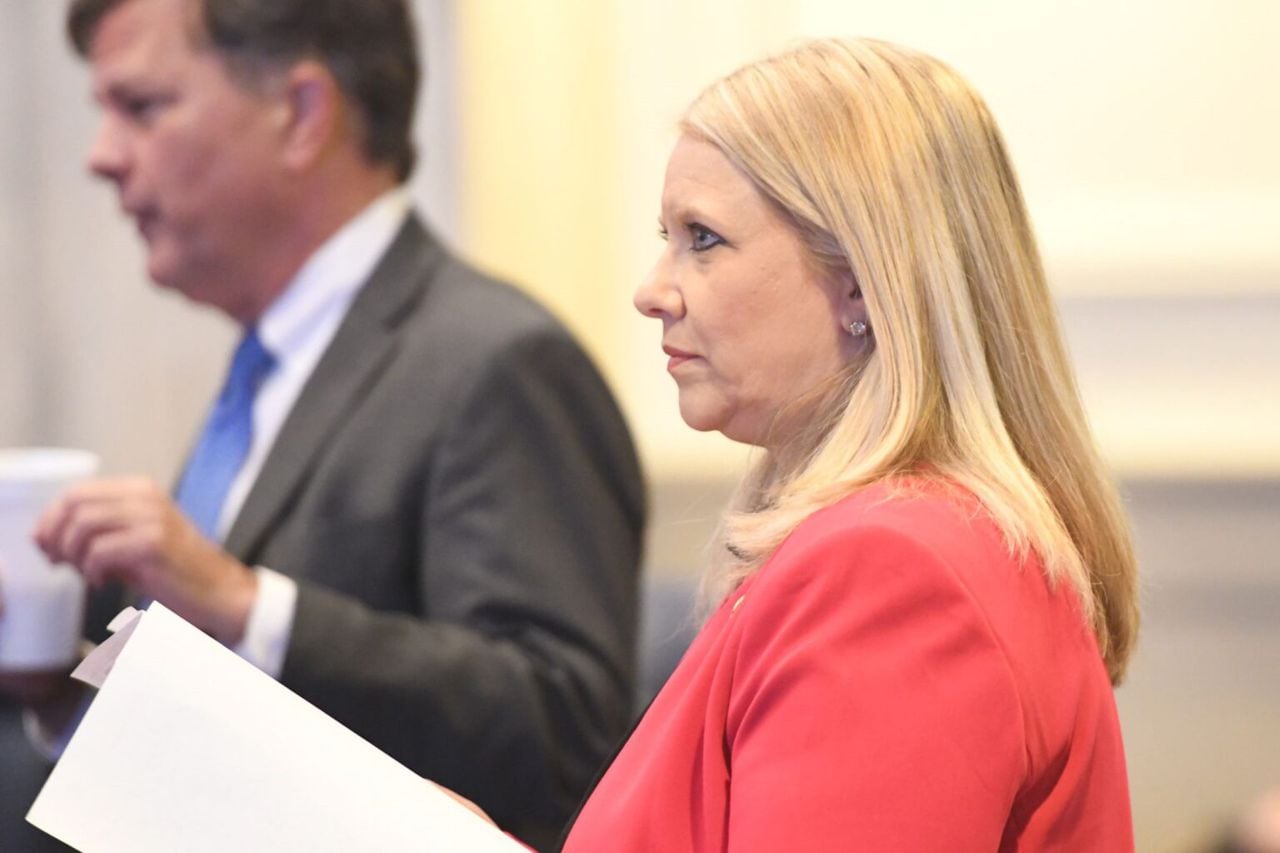Alabama bill stating âevery individual is either male or femaleâ approved by committee
An Alabama Senate committee Tuesday approved a bill that would codify terms around “male” and “woman” based on the sex listed on a person’s birth certificate.
SB 92, sponsored by Sen. April Weaver, R-Brierfield, defines woman as an adult female, or “individual who has, had, will have, or would have, but for a developmental anomaly, genetic anomaly, or accident, the reproductive system that at some point produces ova.” The bill defines man as an adult male, or “individual who has, had, will have, or would have, but for a developmental anomaly, genetic anomaly, or accident, the reproductive system that at some point produces sperm.”
The text of the bill says that there “are only two sexes, and every individual is either male or female.” Similar legislation, called the “What Is A Woman” Act, was filed by Rep. Susan DuBose, R-Hoover, last year but failed to advance. A House version of the bill is scheduled for a hearing in the House Judiciary Committee on Wednesday.
Weaver said after the meeting of the Senate County and Municipal Government Committee that she had heard concerns about women’s spaces like locker rooms being “invaded.” Asked whether that was happening in her district, Weaver said she had heard concerns from people.
“I would say I have had many more people advocating for standing up for women’s rights, loud and clear in my district that women want to be heard and they want to be advocated for so that’s what I’m here doing today,” she said.
The bill comes amid ongoing attacks on transgender people, especially transgender youth, in both Alabama and across the country. In the last few years, Alabama has banned transgender youth from playing high school and college sports and medicine used in gender-affirming care for transgender youth.
Weaver said that the bill came from a women’s group in response to a question about the source of the bill. Asked by reporters after the committee about which women’s group, Weaver said the bill came from many groups but did not name one.
Allison Montgomery, a member of the Alabama Trans Rights Action Coalition (ALTRAC), said during a public hearing Tuesday that the bill was large enough to justify the harassment of any women, transgender or cisgender. She said similar legislation in other states to the harassment of cisgender women in other states and would be in conflict with federal law.
“This bill is not worth Alabama’s time, nor is the mess it will cause if passed,” she said.
In 2022, The Advocate, an outlet focused on LGBTQ+ issues and politics, wrote about a short-haired woman who was not transgender being berated in a public restroom for being transgender.
Several community members signed up to speak but the committee ran out of time near the end. Sen. Chris Elliott, R-Josephine, the chair of the committee, was not able to get to all of the people signed up to speak and speakers were asked to limit themselves to around a minute.
On Monday before the vote, Jeff Walker, an Auburn resident and father of a transgender teenager, said he thought that the bill would have repercussions beyond transgender people and people would only pay attention to it when it caused problems for people it’s not supposed to.
“It’s really spitting in their face, but it has that potential to target them,” he said about its impact on LGBTQ+ people.
Becky Gerritson, executive director of the Eagle Forum of Alabama, said that they supported the bill and that the bill did not impact any current legal rights.
“This bill is really important because it’s going to bring clarity and consistency to how biological women are treated under the law in Alabama,” she said.
Gerritson said it was important to preserve single-sex spaces.
The national Eagle Forum was founded by Phyllis Schlafly who worked to defeat the Equal Rights Amendment and said that improvements for women in the 20th century came from clothes dryers and paper diapers, rather than feminism.
Democrats Sen. Linda Coleman-Madison, D-Birmingham, and Sen. Merika Coleman, D-Pleasant Grove, both had concerns about the bill.
Coleman-Madison said that she felt her rights as a woman, even being a legislator, were continually being violated.
“For the past several years down here, I felt that I had not had a whole lot of rights as a woman when this is about my personal body, my space, my vagina or lack thereof in this case,” said Coleman-Madison.
Both Democratic senators questioned Weaver about the origins of the bill. Coleman asked if the group Weaver claimed the bill came from supported the women’s issues she was concerned about, such as discrimination against women of color or reproductive rights.
“I never want to be the woman that discriminates against, not only other women, but anybody else,” she said.
Two amendments were added in committee that would permit the continued use of “unknown” on birth certificates and would state that sex does not include “gender identity.”
The bill passed 6-3. No woman on the committee voted for the bill.
